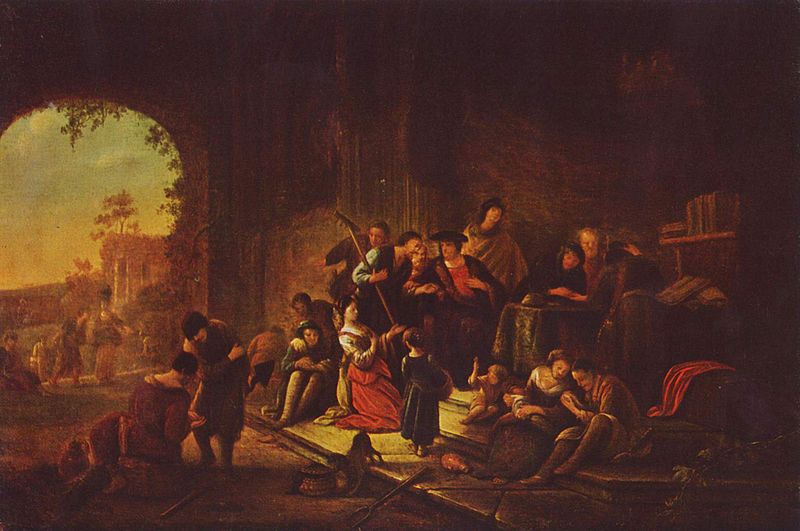Marc Barnes is the extremely talented and fun young writer over at Bad Catholic. A friend texted me the day I was pondering Guest Bloggers, saying how enjoyable Marc’s blog is. I headed on over, and immediately wrote and asked if he’d be interested in Guest Blogging here. He graciously, and happily for me, agreed. Be sure to check out his writing, and to pray for his bright future as well.
…and the last shall be first.
I misunderstood this for a long time. In envisioned it in terms of a line, a long, curving line of people petitioning the Lord with their individual requests and being divinely rearranged. “Sorry Jim, you tried too hard. Get to the back.” This view presents an immediate problem, for if Jim dutifully takes his place at the back of the line, does God’s epigram still apply? Now he is the last; is he to be first again? And once there, will he have to go back? This ‘line’ view gives the impression of constantly rotating positions, which makes utterly no sense.
It also made me think, “Alright God, are you saying I shouldn’t try to be holy? That, if I am to receive your grace, I should work less?”
No, to understand what Christ meant, we have to look at its context; the parable of the workers in the vineyard. All received an equal wage. Those who had worked longer were resentful of those who had worked less. I might as well give away the secret symbolism: The wage is God’s grace, his blessings and gifts. He says to the workers, “Stop whining. It’s mine to give.” And Christ finishes up the story with “the first shall be last and the last shall be first.”

He means that there is no first or last. All received an equal wage, remember? If the first are last and the last are first then there is no first and last at all, just the gift of God’s grace.
For if God’s love is infinite, how could someone have a larger portion than his neighbor? “I have more infinite love than you,” is an inherently stupid statement. And so when we write this Gospel off as “Cute, I get it, I shouldn’t be jealous of the gifts and blessings God has given to other people,” we miss the whole point. The point is that there is no scale for grace; it simply is. We are given it and our neighbors are given it, none of us deserving it in the first place, and after our deaths we will see each other in heaven and simply say, “Oh.”
“Oh,” because we will find out that the wealth of our friend that we envied so much was his greatest curse, and that our poverty was our greatest blessing. That grace filled holes in our lives we didn’t know existed. That in the end it is only His love that sustains the very fabric of the universe, and our complaint that “He loves others more than us” is akin to a fish’s complaint that he isn’t quite as wet as his brothers. That an evil man might be led into heaven from a deathbed should be no more amazing than that we are allowed into heaven by tripping our way through life.
Yes, we should be absolutely amazed by other humans. We should speak with them, think of them and shake their hands with the deepest reverence, because God has seen fit to eradicate the last and the first among us. All that is left is an open-armed reception of his love. May the workers of the vineyard, having received their pay, turn to each other with wide eyes, saying, “Can you believe how much he loves us? Not one of us will go hungry tomorrow; not one.”
-Marc Barnes from BadCatholic